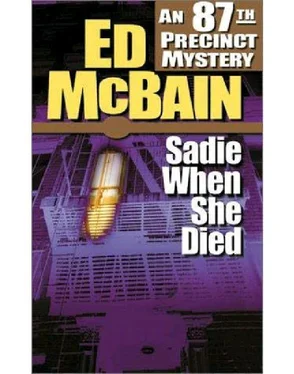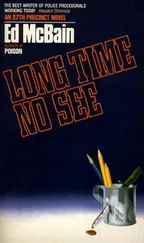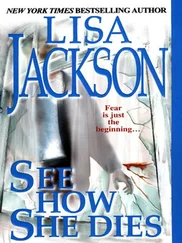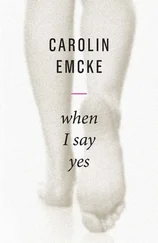Ed McBain - Sadie When She Died
Здесь есть возможность читать онлайн «Ed McBain - Sadie When She Died» весь текст электронной книги совершенно бесплатно (целиком полную версию без сокращений). В некоторых случаях можно слушать аудио, скачать через торрент в формате fb2 и присутствует краткое содержание. Жанр: Полицейский детектив, на английском языке. Описание произведения, (предисловие) а так же отзывы посетителей доступны на портале библиотеки ЛибКат.
- Название:Sadie When She Died
- Автор:
- Жанр:
- Год:неизвестен
- ISBN:нет данных
- Рейтинг книги:4 / 5. Голосов: 1
-
Избранное:Добавить в избранное
- Отзывы:
-
Ваша оценка:
- 80
- 1
- 2
- 3
- 4
- 5
Sadie When She Died: краткое содержание, описание и аннотация
Предлагаем к чтению аннотацию, описание, краткое содержание или предисловие (зависит от того, что написал сам автор книги «Sadie When She Died»). Если вы не нашли необходимую информацию о книге — напишите в комментариях, мы постараемся отыскать её.
Sadie When She Died — читать онлайн бесплатно полную книгу (весь текст) целиком
Ниже представлен текст книги, разбитый по страницам. Система сохранения места последней прочитанной страницы, позволяет с удобством читать онлайн бесплатно книгу «Sadie When She Died», без необходимости каждый раз заново искать на чём Вы остановились. Поставьте закладку, и сможете в любой момент перейти на страницу, на которой закончили чтение.
Интервал:
Закладка:
They found a cocktail lounge near the hospital, one they had never been to before, either together or separately, Kling sensing that a “first” was necessary to their rediscovery of each other. They sat at a small round table in a corner of the room. The crowd noises were comforting. He suspected an English pub might be like this on Christmas Eve, the voice cadences lulling and soft, the room itself warm and protective, a good place for nurturing a love that had almost died and was now about to redeclare itself.
“Where’s my present?” he said, and grinned in mock, evil greediness.
She reached behind her to where she had hung her coat on a wall peg, and dug into the pocket, and placed a small package in the exact center of the table. The package was wrapped in bright blue paper and tied with a green ribbon and bow. He felt a little embarrassed; he always did when receiving a gift. He went into the pocket of his own coat, and placed his gift on the table beside hers, a slightly larger package wrapped in jingle-bells paper, red and gold, no bow.
“So,” she said.
“So,” he said.
“Merry Christmas.”
“Merry Christmas.”
They hesitated. They looked at each other. They both smiled.
“You first,” he said.
“All right.”
She slipped her fingernail under the Scotch Tape and broke open the wrapping without tearing the paper, and then eased the box out, and moved the wrapping aside, intact, and centered the box before her, and opened its lid. He had bought her a plump gold heart, seemingly bursting with an inner life of its own, the antiqued gold chain a tether that kept it from ballooning ecstatically into space. She looked at the heart, and then glanced quickly into his expectant face and nodded briefly and said, “Thank you, it’s beautiful.”
“It’s not Valentine’s Day . . .”
“Yes.” She was still nodding. She was looking down at the heart again, and nodding.
“But I thought . . .” He shrugged.
“Yes, it’s beautiful,” she said again. “Thank you, Bert.”
“Well,” he said, and shrugged again, feeling vaguely uncomfortable and suspecting it was because he hated the ritual of opening presents. He ripped off the bow on her gift, tore open the paper, and lifted the lid off the tiny box. She had bought him a gold tie-tack in the form of miniature handcuffs, and he read meaning into the gift immediately, significance beyond the fact that he was a cop whose tools of the trade included real handcuffs hanging from his belt. His gift had told her something about the way he felt, and he was certain that her gift was telling him the very same thing—they were together again, she was binding herself to him again.
“Thank you,” he said.
“Do you like it, Bert?”
“I love it.”
“I thought . . .”
“Yes, I love it.”
“Good.”
They had not yet ordered drinks. Kling signaled for the waiter, and they sat in curious silence until he came to the table. The waiter left, and the silence lengthened, and it was then that Kling began to suspect something was wrong, something was terribly wrong. She had closed the lid on his gift, and was staring at the closed box.
“What is it?” Kling asked.
“Bert . . .”
“Tell me, Cindy.”
“I didn’t come here to . . .”
He knew already, there was no need for her to elaborate. He knew, and the noises of the room were suddenly too loud, the room itself too hot.
“Bert, I’m going to marry him,” she said.
“I see.”
“I’m sorry.”
“No, no,” he said. “No, Cindy, please.”
“Bert, what you and I had together was very good . . .”
“I know that, honey.”
“And I just couldn’t end it the way . . . the way we were ending it. I had to see you again, and tell you how much you’d meant to me. I had to be sure you knew that.”
“Okay,” he said.
“Bert?”
“Yes, Cindy. Okay,” he said. He smiled and touched her hand reassuringly. “Okay,” he said again.
They spent a half hour together, drinking only the single round, and then they went out into the cold, and they shook hands briefly, and Cindy said, “Good-bye, Bert,” and he said, “Good-bye, Cindy,” and they walked off in opposite directions.
Peter Brice lived on the third floor of a brownstone on the city’s South Side. Kling reached the building at a little past six-thirty, went upstairs, listened outside the door for several moments, drew his service revolver, and knocked. There was no answer. He knocked again, waited, holstered his revolver, and was starting down the hall when a door at the opposite end opened. A blond-headed kid of about eight looked into the hallway and said, “Oh.”
“Hello,” Kling said, and started down the steps.
“I thought it might be Santa Claus,” the kid said.
“Little early,” Kling said over his shoulder.
“What time does he come?” the kid asked.
“After midnight.”
“When’s that?” the kid shouted after him.
“Later,” Kling shouted back, and went down to the ground floor. He found the super’s door alongside the stairwell, near where the garbage cans were stacked for the night. He knocked on the door and waited. A black man wearing a red flannel robe opened the door and peered into the dim hallway.
“Who is it?” he said, squinting up into Kling’s face.
“Police officer,” Kling said. “I’m looking for a man named Peter Brice. Know where I can find him?”
“Third-floor front,” the super said. “Don’t do no shootin’ in the building.”
“He’s not home,” Kling said. “Got any idea where he might be?”
“He hangs out on the corner sometimes.”
“What corner?”
“Barbecue joint on the corner. Brice’s brother works there.”
“Up the street here?”
“Yeah,” the super said. “What’d he do?”
“Routine investigation,” Kling answered. “Thanks a lot.”
The streets were dark. Last-minute shoppers, afternoon party-goers, clerks and shopgirls, workingmen and housewives, all of whom had been rushing toward tomorrow since the day after Thanksgiving, now moved homeward to embrace it, put the final fillip on the tree, drink a bit of nog, spend the last quiet hours in peaceful contemplation before the onslaught of relatives and friends in the morning, the attendant frenzied business of gifting and getting. A sense of serenity was in the air. This is what Christmas is all about, Kling thought, this peaceful time of quiet footfalls, and suddenly wondered why the day before Christmas had somehow become more meaningful to him than Christmas Day itself.
Skewered, browning chickens turned slowly on spits, their savory aroma filling the shop as Kling opened the door and stepped inside. A burly man in a white chef’s apron and hat was behind the counter preparing to skewer four more plump white birds. He glanced up as Kling came in. Another man was at the cigarette machine, his back to the door. He was even bigger than the one behind the counter, with wide shoulders and a thick bull’s neck. He turned from the machine as Kling closed the door, and the recognition between them was simultaneous. Kling knew at once that this was the man who’d beaten him senseless last Monday night, and the man knew that Kling had been his victim. A grin cracked across his face. “Well, well,” he said, “look who’s here, Al.”
“Are you Peter Brice?” Kling asked.
“Why, yes, so I am,” Brice said, and took a step toward Kling, his fists already clenched.
Kling had no intention of getting into a brawl with a man as big as Brice. His shoulder still ached (Meyer’s copper bracelet wasn’t worth a damn) and he had a broken rib and a broken heart besides (which can also hurt). The third button of his overcoat was still unbuttoned. He reached into the coat with his right hand, seized the butt of his revolver, drew it swiftly and effortlessly, and pointed it directly at Brice’s gut.
Читать дальшеИнтервал:
Закладка:
Похожие книги на «Sadie When She Died»
Представляем Вашему вниманию похожие книги на «Sadie When She Died» списком для выбора. Мы отобрали схожую по названию и смыслу литературу в надежде предоставить читателям больше вариантов отыскать новые, интересные, ещё непрочитанные произведения.
Обсуждение, отзывы о книге «Sadie When She Died» и просто собственные мнения читателей. Оставьте ваши комментарии, напишите, что Вы думаете о произведении, его смысле или главных героях. Укажите что конкретно понравилось, а что нет, и почему Вы так считаете.












